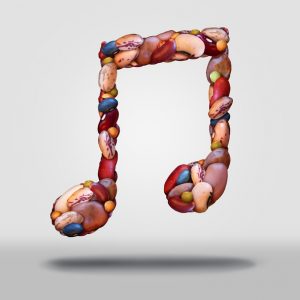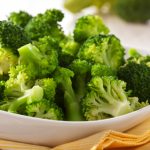 Passing gas is a normal body reaction, but some people can experience excessive gas and flatulence as they age. While most excess gas and flatulence can be easily dealt with, there are situations where it can be a sign of an underlying health issue.
Passing gas is a normal body reaction, but some people can experience excessive gas and flatulence as they age. While most excess gas and flatulence can be easily dealt with, there are situations where it can be a sign of an underlying health issue.
We all know that excessive gas or flatulence is not a medical emergency. Most of the gas we pass is due to the breakdown of foods in our bodies. Food consumption leads to hydrogen, carbon dioxide, and methane generation. Meanwhile, the odor is from other waste gases, including skatole and sulfur-containing substances. Excessive gas becomes a concern if a person develops other unusual symptoms along with the gas, such as cramping, diarrhea, constipation, bloody stools, or nausea and vomiting. These could be the sign of an inflammatory bowel disease, an intestinal bacterial overgrowth, an infection, or irritable bowel syndrome.
Advertisement
Causes of flatulence and excessive gas in elderly
Flatulence causes or excessive gas causes in the elderly come down to two basic factors: diet and overall health. In many cases, these can be addressed with lifestyle adjustments.
If you or someone you know has had to deal with the uncomfortable and/or embarrassing problem of excessive gas, perhaps one of the following factors is responsible.
- Slower digestion – the digestive process can slow down as we get older, leading to constipation and flatulence. The flatulence cure in this case could be as simple as drinking more water and eating more foods that are rich in fiber.
- Medications – many older adults are taking medications, and some of those medications come with the side effect of flatulence. Some antibiotics and blood pressure medications have been known to cause digestive issues, including excessive gas.
- Swallowing air – Wearing dentures or having difficulty swallowing food can cause elderly people to swallow too much air, which can lead to the formation of gas. If you have dentures, make sure they fit properly.
- Lactose intolerance – you can become lactose intolerant at any age. Dairy products (foods containing lactose) simply have to be removed from a lactose-intolerant person’s diet.
- Certain foods – there are foods that tend to cause gas in all of us, but for some reason they seem to create more gassiness in older people. For example, vegetables like broccoli, cabbage, legumes, and onions.
Natural remedies to prevent flatulence in elderly
 When considering a flatulence remedy, people should keep in mind natural approaches. To begin with, a lot of excessive gas and flatulence can be prevented by gaining a better understanding of what foods cause you personally to develop more gas. The best way to go about this is by going on a simple diet and then slowly adding new foods – one at a time – to determine which food causes you to produce a lot of gas. In the end, you can simply eliminate the foods that are causing the problem.
When considering a flatulence remedy, people should keep in mind natural approaches. To begin with, a lot of excessive gas and flatulence can be prevented by gaining a better understanding of what foods cause you personally to develop more gas. The best way to go about this is by going on a simple diet and then slowly adding new foods – one at a time – to determine which food causes you to produce a lot of gas. In the end, you can simply eliminate the foods that are causing the problem.
Taking the time to chew and swallow food properly can be very helpful. Avoiding carbonated drinks can also help you keep flatulence and burping under control.
Getting regular exercise can improve the functioning of the digestive system, as well as the bowel, so maintaining a physical fitness routine is important for those who experience a lot of gas.
While this may sound rather odd, it is a fact that many elderly have experienced success with charcoal-filtered undergarments when it comes to the odor associated with excessive flatulence.
Treatment options for excessive gas and flatulence in elderly
Let’s take a look at some of the flatulence treatment options available for the elderly. It is important to note that what will work for one person may not work for another. If you have excessive gas, you might have to try a combination of treatment options before finding something that works.
Excessive flatulence treatment can be challenging. However, with a little patience and trial, you will have a good chance of finding a solution among the natural remedies listed above or in the treatment options outlined below.
- Lactose-free – For those who are lactose intolerant, there are many lactose-free products on the market now. There is also a tablet called Lactase that you can take before consuming dairy products, but most healthcare professionals agree that it is best to just avoid dairy.
- Charcoal tablets – this is a type of medication that is sold over the counter. It absorbs gas in the digestive system.
- Simethicone – this is a medication that has been known to help with gas problems.
- Dietary supplements – the dietary supplement known as Alpha-galactosidase may help improve digestion and reduce flatulence. It is found in a product called Beano.
- Probiotics – some people have found that probiotics, which encourage the development of “friendly bacteria” in our digestive system, can be helpful in treating flatulence.
Advertisement
If an inflammatory bowel disease or some type of infection is the problem, a physician will consider specific medications designed to address the symptoms.
The reality is that we all pass gas. In fact, the average person passes gas between 13 to 21 times a day. This is considered perfectly normal. When gas becomes excessive and out of control, it can be uncomfortable and embarrassing, but medical science tells us that most of those cases can be prevented with careful attention to diet, especially as we get older and our digestive system starts to slow down. Some of those veggies that you have always loved so much just might not cut it anymore – okay, maybe that was a poor choice of words, but you get the idea. Some people find that keeping a food journal can help them track what causes them gassiness.
When diet doesn’t seem to be the issue and you experience other symptoms along with the excessive gas and flatulence, it’s time to seek medical attention.
